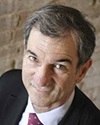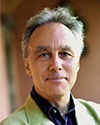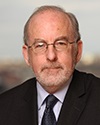Edward Lazear passed away in November 2020 at the age of 72, mourned by many in the worlds of economic research and policy-making. Described by two close colleagues and co-authors at Stanford as ‘the first personnel economist’, he was also a founding member of IGM’s US panel and an important contributor to launching our project of polling economics experts on vital policy issues.
To mark the sad occasion, we invited both our US and European panels to express their views on aspects of Eddie’s work. We asked the experts whether they agreed or disagreed with the following statements, and, if so, how strongly and with what degree of confidence:
(a) Our understanding of labor productivity has been much enhanced by accounting for monetary and promotion-based incentives within firms and related selection effects.
(b) Large salaries for senior business executives are less a reflection of an individual’s current contribution to a firm’s overall performance than a ‘prize’ for those who put in the effort to achieve one of the top positions.
Of our 43 US experts, 40 participated in this survey; of our 48 European experts, 39 participated – for a total of 79 expert reactions.
Incentives and selection effects within firms
On the first statement, an overwhelming majority agreed on the importance of accounting for incentives and selection effects within firms as influences on labor productivity. Weighted by each expert’s confidence in their response, 48% of the US panel strongly agree, 50% agree, and 2% disagree. Among the European panel (again weighted by each expert’s confidence), 35% strongly agree, 58% agree, and 7% are uncertain. Overall, across both panels, 42% strongly agree, 54% agree, 3% are uncertain, and 1% disagree.
Among the short comments that the experts are able to include in their responses, Caroline Hoxby at Stanford says: ‘This is one of the many insights due to the great and (sadly) late Eddie Lazear. He will be missed as a mind and a colleague. Ave, Eddie.’ Nicholas Bloom at Stanford adds: ‘Eddie’s work has been hugely influential in this – for example, the management literature I know well directly built on personnel economics.’ And Anil Kashyap at Chicago notes: ‘This could have been a Nobel prize summary citation. Eddie was a giant and will be sorely missed.’
Several panelists drew our attention to key papers. Oliver Hart at Yale comments: ‘Eddie Lazear’s work on this topic has been very insightful. I would mention particularly his American Economic Review article on Safelite.’ And Christian Leuz at Chicago points to Eddie’s presidential address to the Society of Labor Economists in 1998 on past lessons and future directions for personnel economics; and his 2018 Journal of Economic Perspectives overview of work on compensation and incentives in the workplace.
Of the few experts who say they are uncertain, Franklin Allen at Imperial explains his thinking thus: ‘Still a contentious area I would say. Countries such as Japan don’t have high-powered incentives but still do fairly well it seems.’ And while Daron Acemoglu at MIT agrees with the statement, he notes: ‘But norms, morale and non-monetary incentives matter greatly inside organizations, and monetary incentives can sometimes erode/disrupt them.’
Large remuneration packages as tournament prizes
On the second statement about ‘rank-order tournaments’ (ROT) and whether large salaries for senior business executives are less a reflection of an individual’s current contribution to a firm’s overall performance than a ‘prize’ for those who put in the effort to achieve one of the top positions, a little over a half of the experts agreed, somewhat under a half were uncertain, and a small number disagreed.
Of the US panel (again weighted by each expert’s confidence in their response), 8% strongly agreed, 41% agreed, 39% were uncertain, 8% disagreed, and 5% strongly disagreed. The results were fairly similar for the European panel: 4% strongly agreed, 59% agreed, 28% were uncertain, and 10% disagreed. Overall, across both panels, 6% strongly agreed, 50% agreed, 33% were uncertain, 9% disagreed, and 2% strongly disagreed.
Of those who agree, Caroline Hoxby advises: ‘This is one of Eddie Lazear and Sherwin Rosen’s most insightful papers. Read it.’ Pete Klenow at Stanford links to Eddie’s 1981 study of agency, earnings profiles, productivity, and hours restrictions. And Peter Neary at Oxford directs us to an overview of tournament theory, noting: ‘With some allowance for performance bonuses, the statement is accurate for many organizations. This is not necessarily desirable though.’
Others who agree have similar concerns. Daron Acemoglu states: ‘Big caveat: that “effort” is often non-productive as well, for example, networking, connections, bending rules, and getting credit for others’ work.’ Richard Thaler at Chicago adds: ‘“Prize” for those who put in the effort to achieve one of the top positions. So a prize for campaigning. Plus luck. *Not* =value created.’ And Christian Leuz mentions: ‘Other factors (including ‘luck’) can play a role.’
Several who agree with the statement make a distinction between internal tournaments for career advancement and the global market for senior executives. Kjetil Storesletten at Oslo comments: ‘Wages for top executives reflect firms’ competition for top talent as well as long-term aspects of contracts, including tournaments.’ Robert Shimer at Chicago adds: ‘This is correct for internal promotions. Less so for the global market for CEOs.’ And Bengt Holmstrom at MIT states: ‘Not sure it is a prize a la tournament theory, as much as it reflects market value as several studies suggest.’
Panelists who say they are uncertain also point to context. Antoinette Schoar at MIT says: ‘Whether tournament component of salary is more important than compensation for effort depends on context.’ Larry Samuelson at Yale agrees: ‘Senior salaries are set in thin markets by negotiation or other processes with performance hard to measure; so are difficult to characterize.’ And Oliver Hart notes: ‘Promotion to a high salary position can be an important incentive but a high salary can be paid because an executive has a scarce talent.’
Finally, two panelists who disagree add comments. David Autor at MIT puns: ‘Much as I like the ROT hypothesis, I doubt it’s the main explanation for the rot-ten excess of executive pay in the US.’ And Abhijit Banerjee at MIT returns to the theme of luck: ‘Often it’s neither of the given options. Just rents you capture by being in the right place at the right time, or pure windfalls.
All comments made by the experts are in the full survey results. And in addition to the VoxEU column on Eddie’s life and work by his colleagues Paul Oyer and Kathryn Shaw, two members of our European panel – Imran Rasul and University College London and Oriana Bandiera at LSE – have published an obituary on the Royal Economic Society website.
Romesh Vaitilingam
@econromesh
January 2020
Question A:
Our understanding of labor productivity has been much enhanced by accounting for monetary and promotion-based incentives within firms and related selection effects.
Responses
Responses weighted by each expert's confidence
Question B:
Large salaries for senior business executives are less a reflection of an individual’s current contribution to a firm’s overall performance than a ‘prize’ for those who put in the effort to achieve one of the top positions.
Responses
Responses weighted by each expert's confidence
Question A Participant Responses
Question B Participant Responses
| Participant | University | Vote | Confidence | Bio/Vote History |
|---|---|---|---|---|
   Franklin Allen |
Imperial College London | Bio/Vote History | ||
|
Again a contentious area. Seems to be a complex issue.
|
||||
   Pol Antras |
Harvard | Bio/Vote History | ||
|
|
||||
   Oriana Bandiera |
London School of Economics | Bio/Vote History | ||
|
|
||||
   Olivier Blanchard |
Peterson Institute | Did Not Answer | Bio/Vote History | |
|
|
||||
   Nicholas Bloom |
Stanford | Bio/Vote History | ||
|
They are a combination of both - the tournament pay-off and an incentive to keep working. Indeed, this is critical for evaluating CEO pay.
|
||||
   Richard William Blundell |
University College London | Bio/Vote History | ||
|
|
||||
   Elena Carletti |
Bocconi | Bio/Vote History | ||
|
|
||||
   Jean-Pierre Danthine |
Paris School of Economics | Did Not Answer | Bio/Vote History | |
|
|
||||
   Paul De Grauwe |
LSE | Bio/Vote History | ||
|
|
||||
   Jan Eeckhout |
UPF Barcelona | Bio/Vote History | ||
|
|
||||
   Ernst Fehr |
Universität Zurich | Bio/Vote History | ||
|
|
||||
   Xavier Freixas |
Barcelona GSE | Did Not Answer | Bio/Vote History | |
|
|
||||
   Nicola Fuchs-Schündeln |
Goethe-Universität Frankfurt | Bio/Vote History | ||
|
|
||||
   Jordi Galí |
Barcelona GSE | Bio/Vote History | ||
|
|
||||
   Francesco Giavazzi |
Bocconi | Bio/Vote History | ||
|
|
||||
   Rachel Griffith |
University of Manchester | Bio/Vote History | ||
|
|
||||
   Veronica Guerrieri |
Chicago Booth | Did Not Answer | Bio/Vote History | |
|
|
||||
   Luigi Guiso |
Einaudi Institute for Economics and Finance | Bio/Vote History | ||
|
|
||||
   Sergei Guriev |
Sciences Po | Bio/Vote History | ||
|
|
||||
   Patrick Honohan |
Trinity College Dublin | Bio/Vote History | ||
|
Interpreting this question as including other causes for such remuneration being disconnected from marginal contribution to firm performance
|
||||
   Beata Javorcik |
University of Oxford | Bio/Vote History | ||
|
|
||||
   Jan Pieter Krahnen |
Goethe University Frankfurt | Bio/Vote History | ||
|
|
||||
   Botond Kőszegi |
Central European University | Bio/Vote History | ||
|
|
||||
   Eliana La Ferrara |
Harvard Kennedy | Bio/Vote History | ||
|
|
||||
   Christian Leuz |
Chicago Booth | Bio/Vote History | ||
|
JEP below by Lazear (section on Relative Pay and Tournament Theory) w/ evidence. Other factors (incl. "luck") can play role too - see links.
-see background information here -see background information here |
||||
   Thierry Mayer |
Sciences-Po | Did Not Answer | Bio/Vote History | |
|
|
||||
   Costas Meghir |
Yale | Bio/Vote History | ||
|
|
||||
   Peter Neary |
Oxford | Bio/Vote History | ||
|
With some allowance for performance bonuses, the statement is accurate for many organizations. This is not necessarily desirable though
-see background information here |
||||
   Marco Pagano |
Università di Napoli Federico II | Bio/Vote History | ||
|
|
||||
   Lubos Pastor |
Chicago Booth | Bio/Vote History | ||
|
|
||||
   Torsten Persson |
Stockholm University | Did Not Answer | Bio/Vote History | |
|
|
||||
   Christopher Pissarides |
London School of Economics and Political Science | Bio/Vote History | ||
|
|
||||
   Richard Portes |
London Business School | Bio/Vote History | ||
|
|
||||
   Canice Prendergast |
Chicago Booth | Bio/Vote History | ||
|
|
||||
   Carol Propper |
Imperial College London | Bio/Vote History | ||
|
|
||||
   Imran Rasul |
University College London | Bio/Vote History | ||
|
|
||||
   Lucrezia Reichlin |
London Business School | Bio/Vote History | ||
|
|
||||
   Rafael Repullo |
CEMFI | Bio/Vote History | ||
|
|
||||
   Hélène Rey |
London Business School | Did Not Answer | Bio/Vote History | |
|
|
||||
   Antoinette Schoar |
MIT | Bio/Vote History | ||
|
If tournament component of salary is more important than compensation for effort depends on context. Goes back to Lazear/Rosen (1981)
|
||||
   Kjetil Storesletten |
University of Minnesota | Bio/Vote History | ||
|
Wages for top executives reflect firms’ competition for top talent as well as long-term aspects of contracts, including tournaments
|
||||
   Daniel Sturm |
London School of Economics | Bio/Vote History | ||
|
|
||||
   John Van Reenen |
LSE | Bio/Vote History | ||
|
|
||||
   John Vickers |
Oxford | Bio/Vote History | ||
|
|
||||
   Hans-Joachim Voth |
University of Zurich | Bio/Vote History | ||
|
|
||||
   Karl Whelan |
University College Dublin | Did Not Answer | Bio/Vote History | |
|
|
||||
   Charles Wyplosz |
The Graduate Institute Geneva | Bio/Vote History | ||
|
|
||||
   Fabrizio Zilibotti |
Yale University | Did Not Answer | Bio/Vote History | |
|
|
||||

